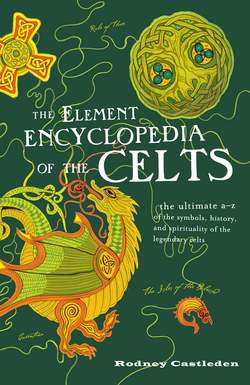Читать книгу The Element Encyclopedia of the Celts - Rodney Castleden - Страница 7
INTRODUCTION WHO WERE THE CELTS?
ОглавлениеFor many people, the word “Celt” conjures two different images; two quite different personalities. One is hot-blooded, fiery, passionate, quick to take offense, volatile, and argumentative. The other is quiet, nostalgic, thoughtful, contemplative, mystical, and in tune with the natural world and also with the world of the spirit. These are two quite different personalities, but they complement each other. They are the two sides of an ancient Celtic coin: the Janus faces of Celticness.
The Celts have tended to dwell on their past, forever looking back to days of former glories and brooding over past defeats. The ancient and medieval Celts loved to tell stories about their tribes, their leaders, their heroes, and their gods. Sometimes there was a practical value in this. Kings and princes needed to justify their positions of privilege, and their ancestry was an integral part of their title. “I am your king because my father was your king and his father before him…” They needed bards to recite their genealogies so that their subjects were regularly reminded of their lords’ pedigrees. Sometimes these genealogies included glamorous imaginary heroes and the recitation of the family tree developed into entertainment.
Storytelling has always been an important element in the Celtic psyche, and the edge between story and history has always been blurred. But a story, or the complex web of interlocking stories that made up the tribal myth, was what held Celtic society together. Every community needs an idea of itself in order to survive, a clear self-image that makes it possible to tell the difference between itself and other communities. This was why one tribe adopted one totem animal and another tribe adopted a different animal, and why one tribe adopted one species of tree, and another tribe a different species. “We are the elm people.” “We are the oak people. We are different.” That sense of special identity has always been important.
An important theme in this book is that the key to that sense of identity has changed through time. The basis, the foundation, of Celticness is not the same now as it was. What I hope to show is that in spite of this the roots of Celticness are deep; they are thousands of years old, much older than most modernday Celts realize.
